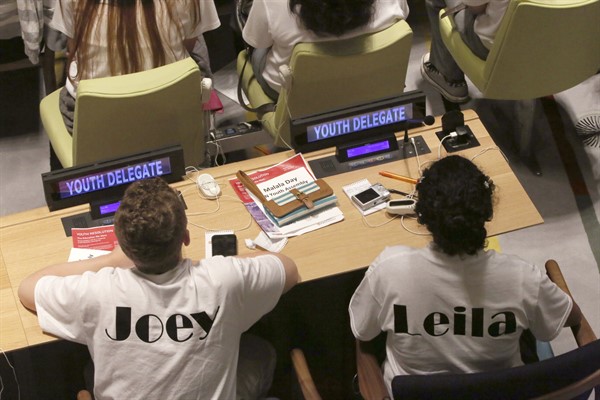Young people have been demanding better representation at the United Nations for many decades, but in the past couple of years, world leaders have seemed to catch on. In 2020, to mark the 75th anniversary of the United Nations, all 193 of the world body’s member states came together to release a declaration committing to “listen to and work with youth.” Since then, it has been near impossible to go to a U.N. meeting aimed at young people without hearing phrases like “intergenerational cooperation” or “intergenerational solidarity.”
This is no doubt a step in the right direction. In a 2021 manifesto titled “Our Common Agenda,” which laid out his agenda for a second term, U.N. Secretary-General Antonio Guterres called for a new “U.N. Youth Office” to enhance the role of the special envoy on youth, an office created in 2013 by his predecessor Ban Ki-moon. Slowly, then, it seems U.N. leaders are responding to the growing urgency of young people, who have long pressed for proactive action on issues like climate change and education.
But the pace of progress is still far too slow. While U.N. leaders have been singing the right tunes in recent years, they have yet to translate those sentiments into concrete action. Dropping a few buzzwords at high-profile events is not the same as actually fulfilling their promises to “listen to and work with” the world’s young people.

